Protractor
A protractor is a tool used to measure angles. Most protractors measure angles in degrees (°).
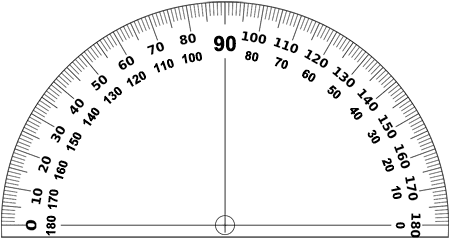
When using a protractor, notice that the outside set of numbers goes from 0 to 180 degrees where the 0 is on the left side of the protractor while the inner set goes from 180 to 0 degrees where 0 is on the right side of the protractor. Whichever side you line up with the zero-degree line determines which set of numbers to use.
How to measure angles using a protractor
Let's measure ∠STV below.
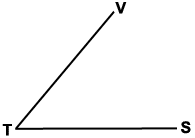
- First, place side so the vertex is inside the hole (the midpoint) of the protractor and lines up with the 0 line to the right.
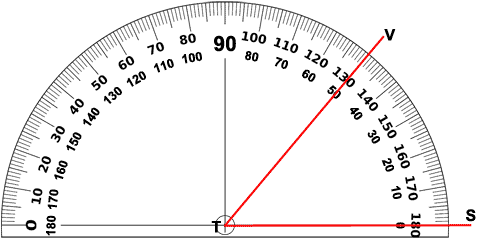
- Second, make sure that is extended enough such that it goes through the edge of the protractor, then read the degree measure on the inner set of numbers where side intersects the protractors edge.
So, ∠STV has a measure of 50°.
Similarly, you can place so the vertex is inside the hole of the protractor and lines up with the 0 line to the left side of the protractor. Then, read the degree measure on the outside set of numbers where side intersects the edge of the protractor. It also shows ∠STV has a measure of 50°.
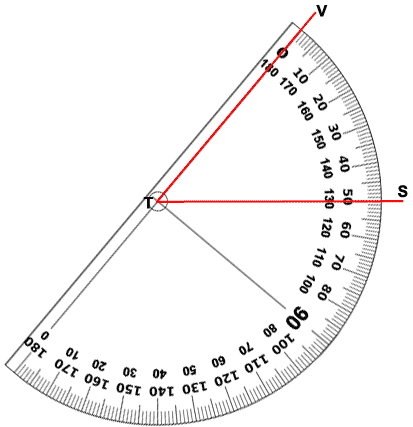
How to draw angles with a protractor
Protractors can also be used to draw an angle having a specific measure. For example, to draw ∠OMP having a measure of 30°:
- First, draw a line segment and put the protractor on the line such that vertex M lies on the midpoint of the protractor and lines up with the 0 line on the left side of the protractor.
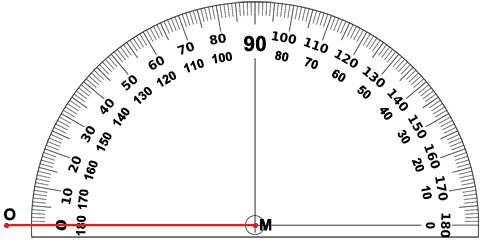
- Then find 30 on the outside set of degree measures and mark it with point P.
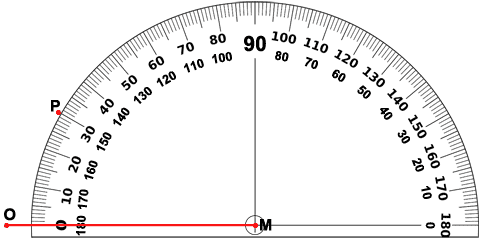
- Lastly, draw segment with a straight edge. It's ok to extend the segment beyond P.
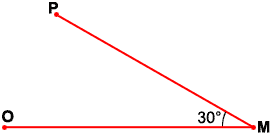
We could also construct ∠OMP by placing on the 0 degree line on the right side of the protractor as long as vertex M is centered at the midpoint of the protractor. Similarly, we could have constructed on the 0-degree line first then placed point O on the 30 degree measure to draw .
